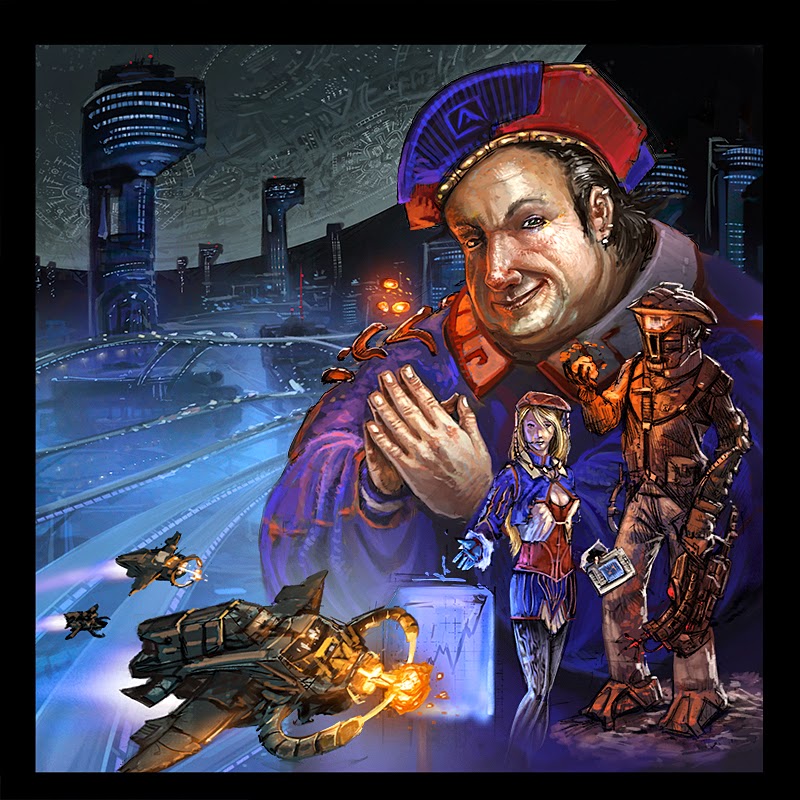 |
| Titan Diarchy sketch by Odysseas Stamoglou |
Titan Diarchy has a special appetite for science and while they are willing to share some of their knowledge with the others, their awareness that knowledge is power guides their philosophy of existence. Several unique technologies give the Diarchy the upper hand in the tech race and provide them with the means to assert they supremacy through technology. Even if war is not their main focus, with their almost limitless access to science, Titan Diarchy has all the means necessary to reach to an immediate or long term threat.
Although many survivor factions claim to be the most technologically advanced, the members of the Titan Diarchy are the true masters of research and the leaders of innovation. With the skills and traditions of the scientific and academic Europe of the Old Earth, the Diarchy is able to use its specialized workforce with utmost effectiveness and precision, becoming the only faction able to come up with a few groundbreaking discoveries in the time it takes others to make a single breakthrough.
The technological lesson is, however, not the only one the Titan Diarchy decided to never forget. The 20th and 21st century wars left Europe destroyed and rebuilt time and time again, which taught the Diarchy that even though fighting on home territory comes with some advantages, the losses usually outweigh the benefits.
This approach has seeped into the Diarchy’s attitude towards armed conflicts. Although the leaders of this scientific faction will always choose peaceful coexistence, they will not run from combat when war is inevitable. In fact, the Diarchy will be the first survivor faction to aggressively attack an opponent, trying to ensure any conflicts play out as far from their own borders as possible.
The main goal of Titan Diarchy is not an all out war. Its members knows how to fight, but it is science they truly excel at. A strong belief that developing new technologies will allow all humanity to live in peace means that the faction’s leaders will always seek a peaceful resolution to any possible conflicts, trying to negotiate and share their technology for the greater good of mankind – and for a profit that will put them in a position of true power in the futuristic technological utopia they are hoping to build.
If you missed our earlier articles, you can read here about Sirius Theocracy, Arctic Dominion and Han-Xia Dynasty.
__________________
Follow us on Twitter: @NSKNGames













